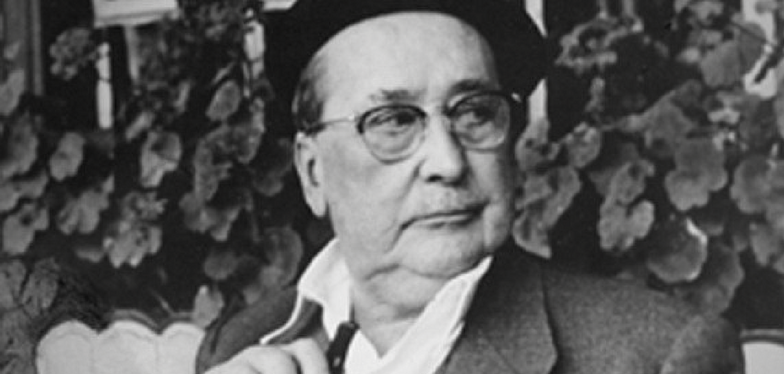Did you know that Willem Elsschot once lived in Brussels?

Author Willem Elsschot, a pseudonym for Alphonsus de Ridder (Antwerp, 7 May 1882 - Antwerp, 31 May 1960), is a staple of the Flemish collective memory. He is among the most prominent writers in the Dutch language sphere, producing mainly prose and poetry. His novels take a cynical tone, with a curt and sober style, using clear and succinct language, by no means voluminous but nevertheless highly influential.
The narrator in a number of the novels is often an alter-ago of Elsschot. He often derived his subject matter from his own business experiences, as well as the events and memories he carried from his family life.
His classics include: Villa des Roses (1913), his debut novel, based on his own memories of his stay at a family-run boarding house in Paris. The book outlines the life of Mr and Mrs Brulot, who owned the Villa des Roses boarding house. They had the most bizarre characters about the house, including the unforgettable little monkey Chico. ‘Elsschottian’ irony at its best. His dual-narrative novel Soft Soap (1924) / The Leg (1938) takes a plaintive swipe against the hard world of business. Elsschot, who besides his writing was also a businessman, uses his own knowledge and experience of business to describe the ups and downs in the main characters' lives from a cynical perspective. He scrutinises the crafty adman Boorman's sales techniques, describing his trickery and guile in a humorous manner. In his short story Cheese (1933), Laarmans trades in his humble job as an office clerk to become a wholesaler in full-cream Edam cheese. He hopes to make a name for himself as a well-to-do merchant this way, but it all goes spectacularly wrong.
Elsschot's work has been translated into 13 languages, and Cheese even into 30, which makes it the most widely-translated Flemish novel ever. Beyond that, his work has been adapted for stage and screen, and even reworked into a comic strip.
What is less well-known, however, is that despite being born and bred in Antwerp, Willem Elsschot also lived at a range of addresses in Brussels from 1911 to 1914. In Soft Soap / The Leg, the pre-WWI Brussels is easily recognisable. A quote: ‘Brussels had just replaced the horse-drawn trams with electric models and the centre of Brussels enjoyed excellent links to suburbs like Uccle, Saint-Gilles, Auderghem, Ixelles and Laeken. And cars had begun to appear on the street scene. The automobile would soon start to compete with the train, or as (character) Korthals explained to Boorman: “In times gone by, our dearly departed were shipped by train, just like herring. They were weighed, sir, and accompanied by a waybill until our fourteen (motorised hearse) could put an end to such abhorrence.”.’ The first luxury restaurants were establishing themselves along the central avenues laid down under King Leopold II. Elsschot wrote: ‘A stranger strolling through centre of Brussels who, deafened by the noise and bustle, might take his repose on a bench near the Stock Exchange … would simply imagine that the centre of that lavish city consisted of nothing but hotels, coffee houses, patisseries and fragrance shops.’ One last thing - bananas were a luxury product in those days. Only the well-off could afford them, which is another thing to be mentioned in Soft Soap / The Leg. This scene takes place at an auction: ‘The lady from next door had left the strips of her banana skin hanging down without taking the last bite … until my lady neighbour, who had spent the whole morning eating in silence, raised her peeled banana aloft to attract the notary's attention and calmly offered 350.’